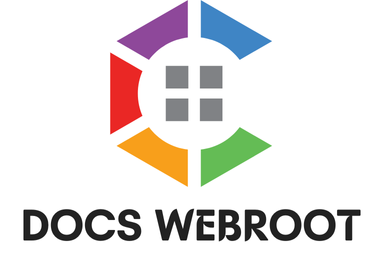As businesses navigate the complexities of modern data management, the need for efficient data integration and transformation becomes crucial. Enter Azure Data Factory (ADF), a powerful cloud-based service designed to streamline ETL (Extract, Transform, Load) processes. In this article, we’ll explore how Azure Data Factory can revolutionize your data workflows and drive analytics, all while leveraging the robust capabilities of the Azure cloud ecosystem.
Azure Data Factory stands out as a fully-managed, serverless data integration service. It allows you to create, schedule, and orchestrate data pipelines seamlessly. With ADF, you can move and transform data from various sources into a centralized data store for analytics and reporting.
Also to see : Mastering remote code execution: safeguard your applications now
The ability to integrate data from multiple sources and perform complex data transformations is vital for organizations aiming to harness the power of big data. Azure Data Factory simplifies these ETL processes, making it easier to build reliable data pipelines without extensive coding or infrastructure management.
Building Data Pipelines with Azure Data Factory
Creating data pipelines in Azure Data Factory involves defining a series of activities that perform tasks such as data movement, data transformation, and data processing. These pipelines can ingest data from a variety of data sources, including on-premises databases, Azure SQL Database, Azure Blob Storage, and more.
Also to read : What are the best practices for setting up a multi-tenant database architecture in PostgreSQL?
When you create a data pipeline, you define the source and destination data stores, along with the necessary transformations to prepare the data for analysis. ADF supports a rich set of built-in connectors and transformations, enabling seamless integration with various data stores and formats.
For example, you might have data residing in a SQL database that needs to be transformed and loaded into a data lake for further processing. With ADF, you can design a pipeline to extract data from the SQL database, apply necessary transformations, and load it into Azure Data Lake Storage.
Data Transformation and Processing Activities
Data transformation is a core aspect of ETL processes, and Azure Data Factory excels in this area. It provides a range of data transformation activities that can be configured to perform complex data manipulations.
One of the key features is Data Flow, which allows you to define data transformations using a graphical interface. Data Flow supports a variety of transformations, such as aggregations, joins, and data cleansing operations, all executed in a scalable manner within the cloud.
For more advanced transformations, you can use custom logic written in SQL or other programming languages. ADF integrates seamlessly with Azure Synapse Analytics, offering powerful data processing capabilities and enabling large-scale data analytics.
By leveraging these transformation activities, you can ensure that your data is clean, consistent, and ready for analysis. Whether you are working with structured or unstructured data, ADF provides the tools needed to process and transform your data effectively.
Integrating Diverse Data Sources
One of the significant advantages of Azure Data Factory is its ability to integrate with a wide range of data sources. This integration capability is essential for organizations dealing with diverse datasets spread across different platforms and locations.
ADF supports native connectors for numerous data sources, including on-premises databases, cloud storage services, and third-party applications. These connectors enable you to easily ingest data from sources such as Azure Blob Storage, on-premises SQL Server, Salesforce, and more.
In addition to native connectors, ADF also supports generic connectors for REST APIs and OData feeds, providing flexibility to connect to virtually any data source. This extensive connectivity ensures that you can bring together data from disparate systems into a unified data pipeline.
For instance, you might need to integrate data from an on-premises ERP system with data stored in Azure Blob Storage. ADF’s hybrid data integration capabilities allow you to securely connect to on-premises data sources using self-hosted integration runtimes, ensuring smooth data movement between on-premises and cloud environments.
Ensuring Data Security and Compliance
In any data integration and transformation process, ensuring data security and compliance is paramount. Azure Data Factory provides robust security features to help you protect your data and meet regulatory requirements.
Data in transit between ADF and data sources is encrypted using Transport Layer Security (TLS). Additionally, data stored in Azure Blob Storage or other Azure data stores can be encrypted using Azure-managed keys or customer-managed keys for enhanced security.
ADF also integrates with Azure Active Directory (AAD) for authentication and access control. This integration allows you to manage user permissions and enforce role-based access controls (RBAC) to secure your data pipelines and resources.
Furthermore, Azure Data Factory provides detailed monitoring and logging capabilities, enabling you to track data movement and transformation activities. This visibility helps you audit data processing activities and ensure compliance with industry standards and regulations.
By leveraging these security features, you can confidently handle sensitive data and maintain compliance with data protection regulations, such as GDPR and HIPAA.
In today’s data-driven world, efficient data integration and transformation are critical for gaining valuable insights and driving business growth. Azure Data Factory offers a robust, cloud-based solution for managing ETL processes, enabling you to build scalable data pipelines, perform complex data transformations, and integrate data from diverse sources.
By utilizing ADF, you can streamline your data workflows, improve data quality, and enhance your analytics capabilities. The flexibility and scalability of Azure Data Factory, combined with its extensive connectivity and robust security features, make it an ideal choice for organizations looking to harness the full potential of their data.
Whether you are moving data from on-premises systems to the cloud, integrating data from multiple sources, or processing big data for analytics, Azure Data Factory provides the tools and services you need to succeed in a cloud environment. Embrace the power of Azure Data Factory and transform your ETL processes to unlock the value of your data.











